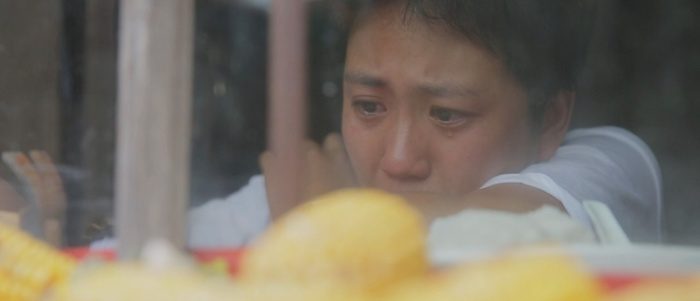
34-year-old Qiu HuaMei wears a hopeful expression as she chats with a potential Mr. Right. She chats about the male chauvinism culture that lingers in her hometown. At first, he has an ear for her until he reveals that he is uncomfortable with the idea of a wife smarter than him. Her hopeful expression peels away to disappointment.
Directed by Shosh Shlam & Hilla Medalia, Leftover Women explores the lives of three Chinese women who live with being deemed shengnu, “Leftover Women,” a derogatory term reserved for unmarried women in or pass their late 20s: Qiu HuaMei the lawyer; 28-year-old Xu Min who works for a public radio station; and the 36-year-old Gai Qi, an assistant professor in Beijing. The three navigate marriage markets, matchmakers, government-sponsored dating festival, and parental tensions in their quest to find a potential spouse. With 30 million more men than women in China, gender imbalance prevails. Even the government sanctions comics that ridicule unmarried women as shameful outcasts.
Leftover Women investigates the intricacies of family expectations and the emotional toll of challenging those expectations. The network of the marriage market that enables the gender inequalities doesn’t accommodating Qui. Her insistence to a counselor that her potential husband must share the housework is considered unreasonable. She is told she has to certainly want children and no man would want her for being child-free. Xu is searching for her Mr. Right but her mother’s disapproving comments hinder her pursuit. Hers and Qui’s arc isn’t a search for Mr. Right as it is challenging their family’s impositions. Gai perhaps ends up with the least-rocky route when she marries her younger boyfriend. While she acknowledges her marriage inevitably has ties to the traditional mindset, it is all her choice rather than conformity. She doesn’t feel her independence became tangled in her marriage and her sacrifices were made on her own terms. Though unlike the other women’s arcs, Gai has the convenience of having the least heated confrontations through the documentary.
A sensitivity prevails whenever the camera fixates on the anguish and reactions on its subjects, be it the leading women or even their nagging family members. Much of the close-ups on Qui focuses on her tearing up, particularly as she engages in debates with her family. We witness a sisterly quarrel where Qui’s married sister insists that she is happier than her even while admitting that having children is a chore—in front of her child. Even through their demands, a dimensionality unfolds through their family’s societal worries, assumptions that women need a breadwinner to take care of them and desire to be appreciated for their parental sacrifices. The film encourages its viewer to feel the women’s resentment, not toward their family but toward the constraining culture that shaped their family’s beliefs. The film suggests it is just as worth empathizing with the reasons why their parents are stuck in patriarchal traditions as it is to challenge their oppressive nature.
Leftover Women admires the fortitude of the women forging their own destinies while reminding us that stigma can wound deeply and can’t be wholly conquered. Filial piety is entangled in the desire for independence as family expectations haunt the women’s decisions or indecisions. Through all the tears, the ending does provide hope that individuals can grow capable of seeing through the societal suffocation.
/Film Rating: 8 out of 10
The post ‘Leftover Women’ Review: A Touching Lens on Filial Piety and Singlehood in China [Tribeca] appeared first on /Film.
from /Film http://bit.ly/2LeGtwA

0 Comments